The latest StackDat update is about clarity. It makes it easier to see what is helping, what is not, and how everything connects.
This is not about features for their own sake. It is about giving people with ALS and MND better ways to understand their own data and share what is working.
Over the past month, we have been rolling out a set of improvements focused on making the experience smoother and more meaningful. These include the new Surveys system for tracking symptoms, the ALSFRS-R-SE functional scale for measuring progression, an overhauled Analytics section, and new ways to stay informed through the Blog and SignALS feed.
Each change is designed to make StackDat more useful in real life, not just on paper.
Let’s take a closer look at what’s new.
Tracking symptoms that change over time
The new Surveys system turns symptom tracking into something you can actually keep up with. Each time you add a new symptom, StackDat now creates a short, ongoing survey for it automatically. No extra setup.
You can deactivate or reactivate surveys without losing your history, which means you do not have to start from scratch when symptoms change or fade.
This is not just tracking for the sake of tracking. It is a way to see the story of your symptoms over time, what is improving, what is stable, and what is not.
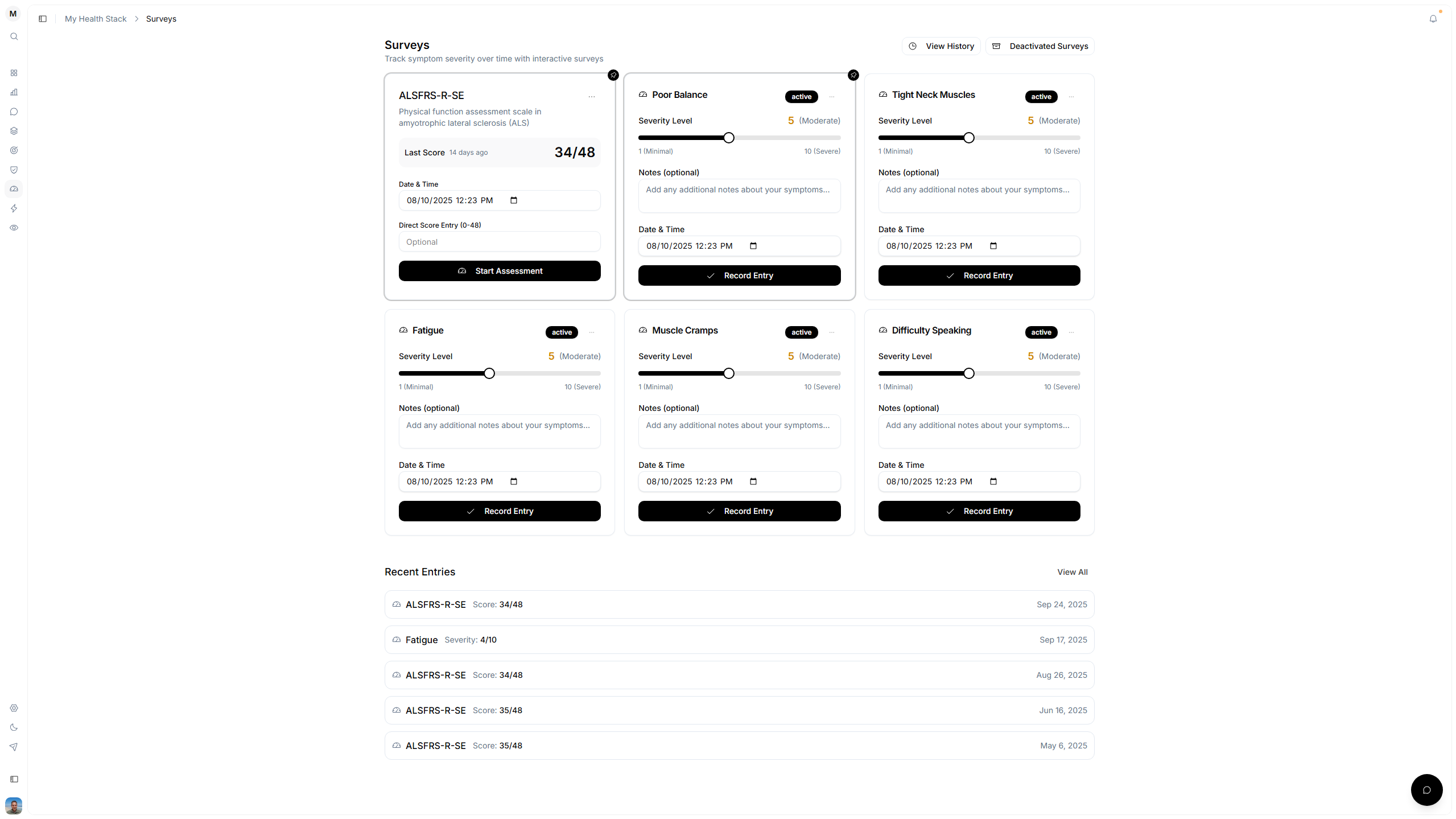
Measuring function, not just feeling
We have also added the ALSFRS-R-SE, a clinical-grade survey designed to measure functional change.
It is the same scale used in research and trials, but we have made it easier to use with one page at a time, clear language, and small explanations built in.
You can log your scores manually or step through the questions interactively. If you already know your score, you can enter it directly.
It is simple, but it matters.
Over time, these scores show trends such as a slow slope, a sudden drop, or a small rebound. Those details help you and your clinicians understand what is working.
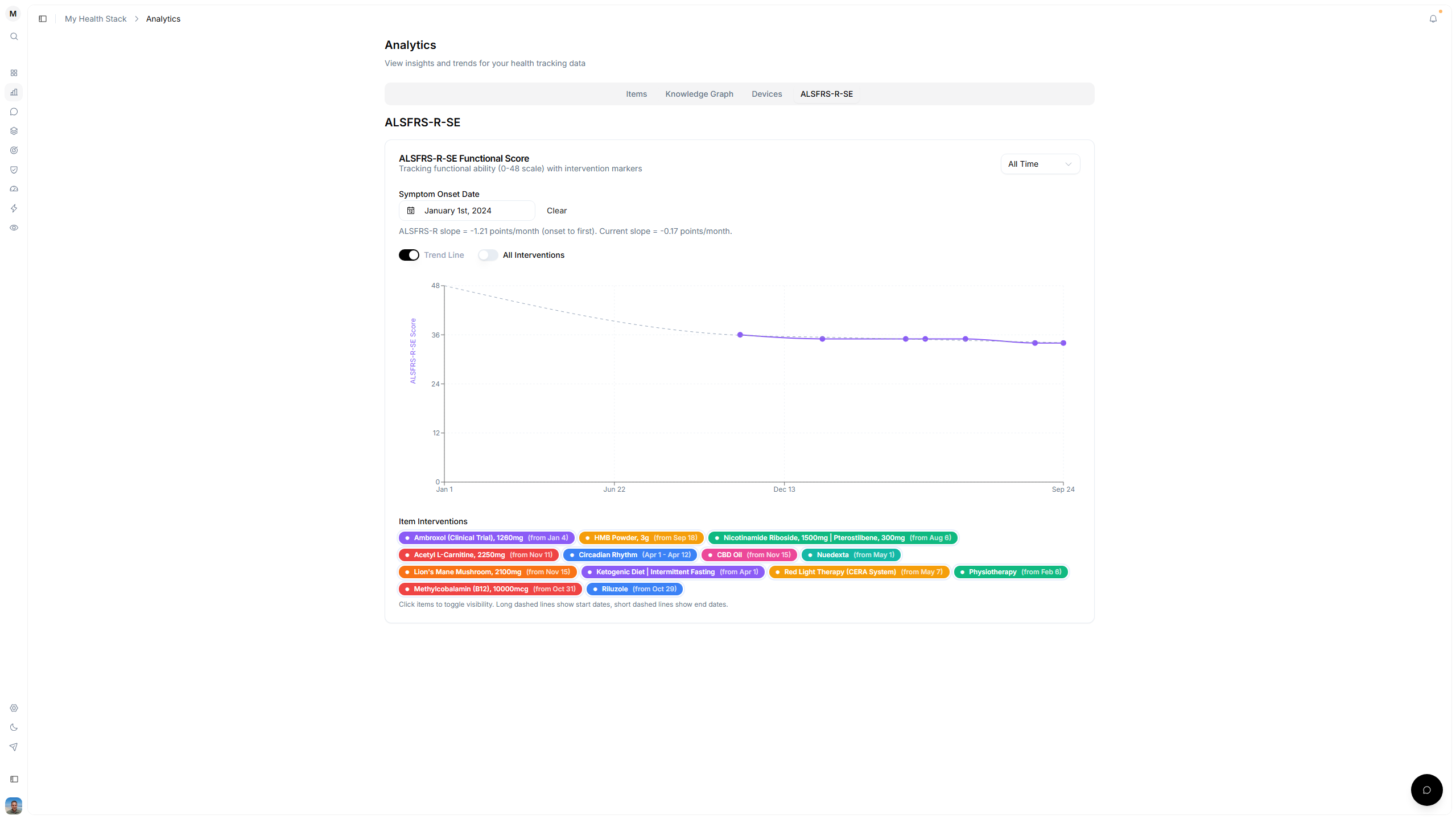
Seeing patterns in your data
The Analytics section has been rebuilt for clarity. You can now switch between tabs for your items, knowledge graph, devices, and ALSFRS-R-SE results. When you do not have data yet, you will see helpful placeholders instead of empty space.
The new chart shows your ALSFRS-R-SE scores over time and overlays your interventions, things like supplements, devices, or therapies, so you can see what might be influencing the slope. You can also enter your symptom onset date to calculate your progression rate.
A new Knowledge Graph view now links symptoms, items, and conditions together in one connected chart. You can create these relationships directly in a Symptom form within Health Records. It helps you see how everything fits — for example, which supplements or therapies are tied to which symptoms, and what conditions might influence the same pathways. It is a visual way to explore your own health data and uncover patterns you might have missed.
It is about turning numbers into insight.
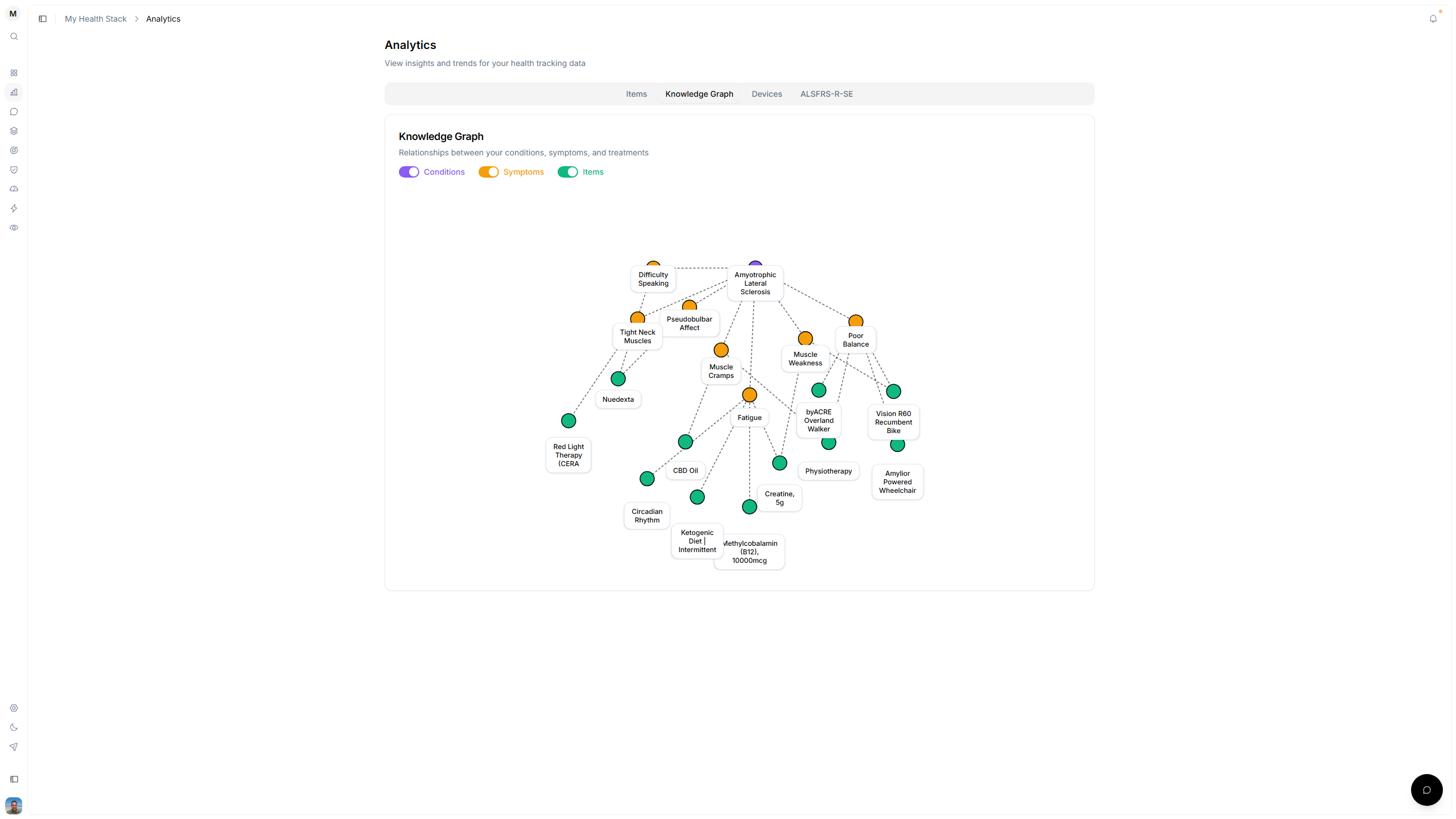
Staying informed and connected
StackDat is now more than a tool for tracking data. It is a place to stay connected to new ideas, stories, and research.
From the dashboard, you can now access both the Blog and the new SignALS feed, short, accessible updates summarised by AI in plain language for people with ALS and caregivers.
These updates cover research, trials, community stories, and reflections from people living with ALS and MND. You can browse full articles or catch quick insights through the widget that appears right below the main blog.
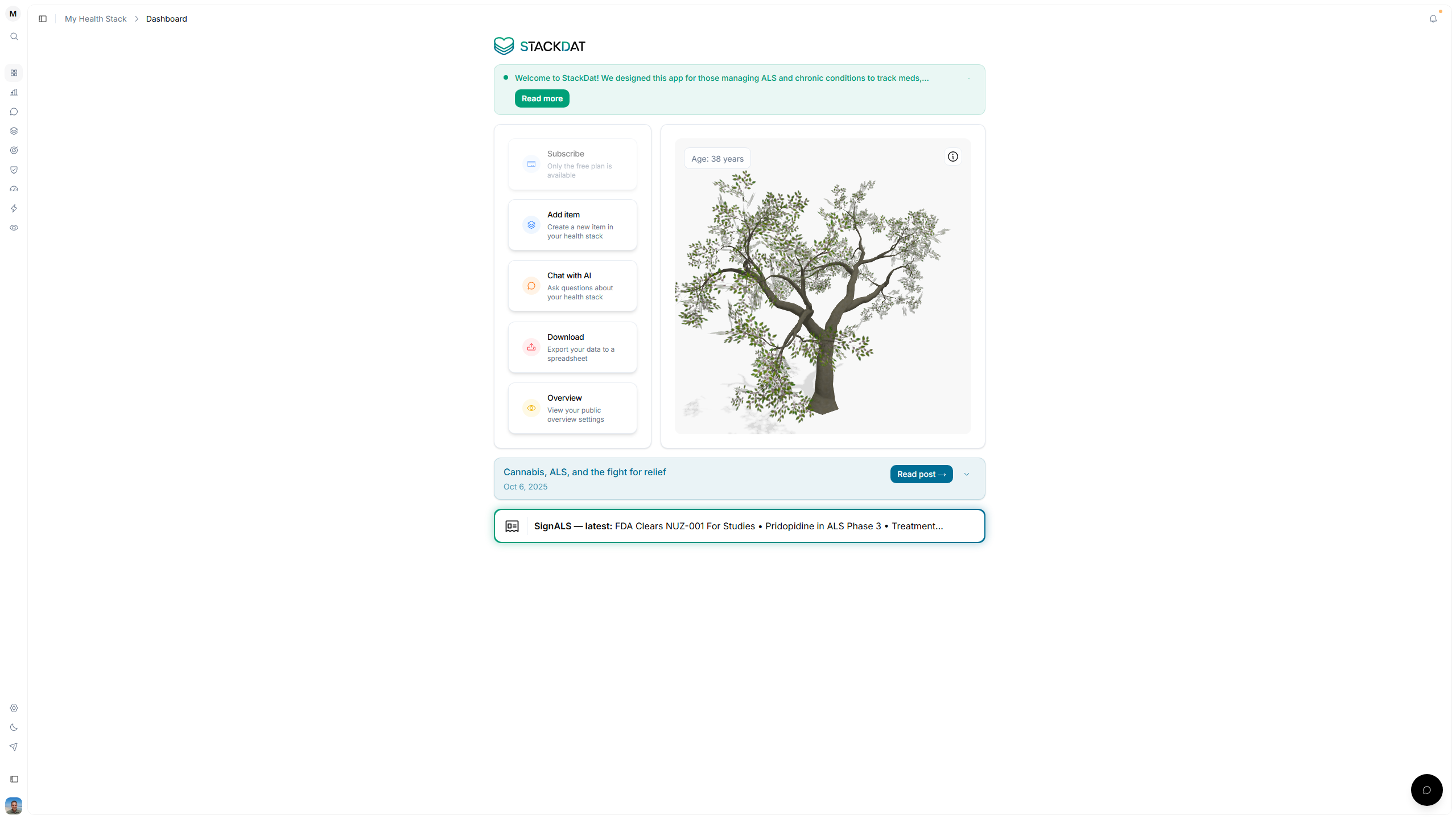
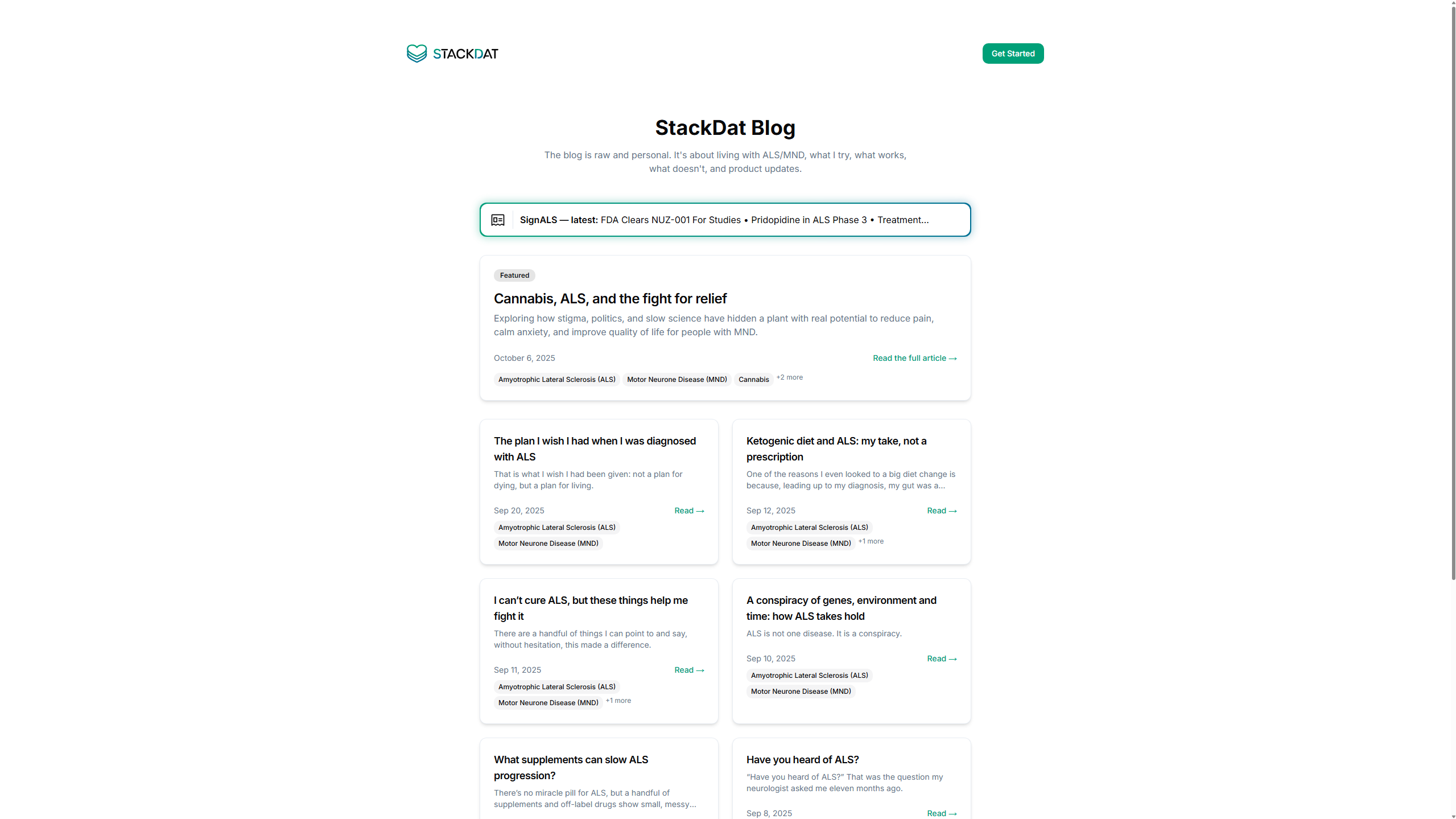
There is no noise and no hype, just what matters to people living with ALS and MND right now.
Admins can now also email updates directly to users who have opted in. It is a small thing, but it helps us stay connected without relying on social algorithms.
Smarter links and richer records
Items now support multiple link attachments, so you can connect research, products, or social posts to the same entry.
It is cleaner, more flexible, and ready for whatever comes next, from studies to personal logs.
Community and connection
Outside the app, we have built the Stacking Hope: ALS/MND Facebook group, a private space for people with ALS and caregivers to share what is working, ask questions, and encourage each other.
Data is one thing. Hope is another. Both are stronger when shared.
Why this update matters
This release is not just about adding features. It is about building a system that helps people make sense of their journey with tools that respect their data, reduce friction, and make insights visible.
Every improvement in StackDat comes back to a single idea: if we can track what is working, we can learn faster together.
You can try all of these updates now at stackdat.com. If you are already using StackDat, log in, explore the new Surveys and Analytics tabs, and tell us what you think. Your feedback shapes what comes next.